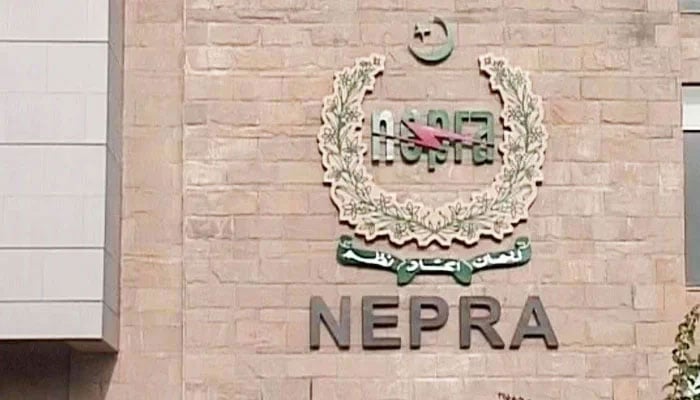Nepra reviews new distribution code to transform power grid
Code applies to Distribution Network Operators (DNOs), power generators, and bulk power consumers
ISLAMABAD: The National Electric Power Regulatory Authority (Nepra) is reviewing the newly drafted Distribution Code 2024, a comprehensive regulatory framework aimed at enhancing the reliability, safety, and efficiency of Pakistan’s electricity distribution system.
The code applies to Distribution Network Operators (DNOs), power generators, and bulk power consumers with connected loads exceeding 1 megawatt (MW). This reflects a broader shift toward market-based energy reforms.
The updated code introduces detailed guidelines for system operations, focusing on improving communication protocols, ensuring system restoration after outages, and implementing enhanced safety measures.
NEPRA has invited stakeholders and interested parties to provide their feedback on the draft within a month, emphasizing the importance of collaborative input to finalize the framework.
This draft, submitted by ex-Wapda distribution companies (XW-Discos), aligns with Nepra Licensing (Distribution) Regulations 2022 and the Competitive Trading Bilateral Contract Market (CTBCM) design. It reflects significant changes in the regulatory, structural, and technological landscape of Pakistan’s electricity sector.
The draft outlines protocols for restoring power after system shutdowns, emphasizing the maintenance of black start capabilities. DNOs are required to notify the System Operator of any changes to their black start facilities, ensuring effective coordination during outages. The framework also mandates that operational incidents affecting the distribution system be reported initially through verbal communication, followed by written documentation. In cases involving multiple users or operators, joint investigations will be conducted to identify and resolve issues collaboratively. Safety is a central focus of the updated code, which requires DNOs to maintain approved Safety Management Systems to protect personnel working on high-voltage equipment. These protocols aim to reduce risks at connection points and ensure compliance with stringent safety standards. Additionally, the code introduces systematic testing and monitoring requirements to maintain the safety and performance of distribution systems. The guidelines also address load management during emergencies, establishing clear procedures for equitable load shedding and effective commercial load allocation. By improving system monitoring and coordination, the code seeks to reduce disruptions and provide a more reliable energy supply to consumers. Nepra has urged all stakeholders, including power producers, DNOs, and bulk power consumers, to thoroughly review the draft and provide their input. This participatory approach is designed to ensure that the regulatory framework is practical, effective, and aligned with the evolving demands of the electricity sector. Once approved, the Distribution Code 2024 will serve as a cornerstone for ongoing energy reforms, driving the transition to a safer, more efficient, and resilient power distribution system across Pakistan.
-
 Sarah Ferguson Watches Beatrice, Eugenie Struggle For Parents: ‘She Could Finally Release It’
Sarah Ferguson Watches Beatrice, Eugenie Struggle For Parents: ‘She Could Finally Release It’ -
 Everything We Know About Michael Sheen’s 'You Told Us To Talk About The Weather'
Everything We Know About Michael Sheen’s 'You Told Us To Talk About The Weather' -
 Jodie Sweetin Breaks Silence On Her Bond With Candace Cameron Bure: 'Not Gonna Hug'
Jodie Sweetin Breaks Silence On Her Bond With Candace Cameron Bure: 'Not Gonna Hug' -
 Indonesia Slams Meta Over Rising Disinformation And Online Gambling Content
Indonesia Slams Meta Over Rising Disinformation And Online Gambling Content -
 Rockstar Pulls GTA 6 From Store After Surprise Leak: Here’s Why
Rockstar Pulls GTA 6 From Store After Surprise Leak: Here’s Why -
 Brooklyn Beckham Reacts Negatively To Birthday Tributes From David, Victoria
Brooklyn Beckham Reacts Negatively To Birthday Tributes From David, Victoria -
 Nicola Coughlan Makes Major Claim Over ‘plus Size’ Label
Nicola Coughlan Makes Major Claim Over ‘plus Size’ Label -
 Senate Prioritizes Housing As Crypto Bill Hits New Impasse, Stalling Trump’s ‘Clarity Act’ Agenda
Senate Prioritizes Housing As Crypto Bill Hits New Impasse, Stalling Trump’s ‘Clarity Act’ Agenda -
 China Unveils ‘childbirth-friendly Society’ Plan To Reverse Demographic Decline
China Unveils ‘childbirth-friendly Society’ Plan To Reverse Demographic Decline -
 Nicole Kidman's Daughter Sunday Rose Under Intense Backlash Post-Keith Urban Divorce
Nicole Kidman's Daughter Sunday Rose Under Intense Backlash Post-Keith Urban Divorce -
 Teddi Mellencamp Reveals Medication Side-effects Landed Her In The Hospital
Teddi Mellencamp Reveals Medication Side-effects Landed Her In The Hospital -
 Chase Stokes Calls Out Morgan Evans Over Comments On Kelsea Ballerini Split
Chase Stokes Calls Out Morgan Evans Over Comments On Kelsea Ballerini Split -
 Elon Musk Says Legal Pressure Forced Full-price Twitter Deal
Elon Musk Says Legal Pressure Forced Full-price Twitter Deal -
 Sarah Ferguson’s Downfall & Housing Crisis: Pals Make A Decision On Radioactive Ex-Duchess
Sarah Ferguson’s Downfall & Housing Crisis: Pals Make A Decision On Radioactive Ex-Duchess -
 Taylor Swift Faces Awkward Situation Ahead Of Her Wedding To Travis Kelce
Taylor Swift Faces Awkward Situation Ahead Of Her Wedding To Travis Kelce -
 Anthropic, Pentagon Resume Talks On ‘high Stakes’ AI Defense Deal
Anthropic, Pentagon Resume Talks On ‘high Stakes’ AI Defense Deal




